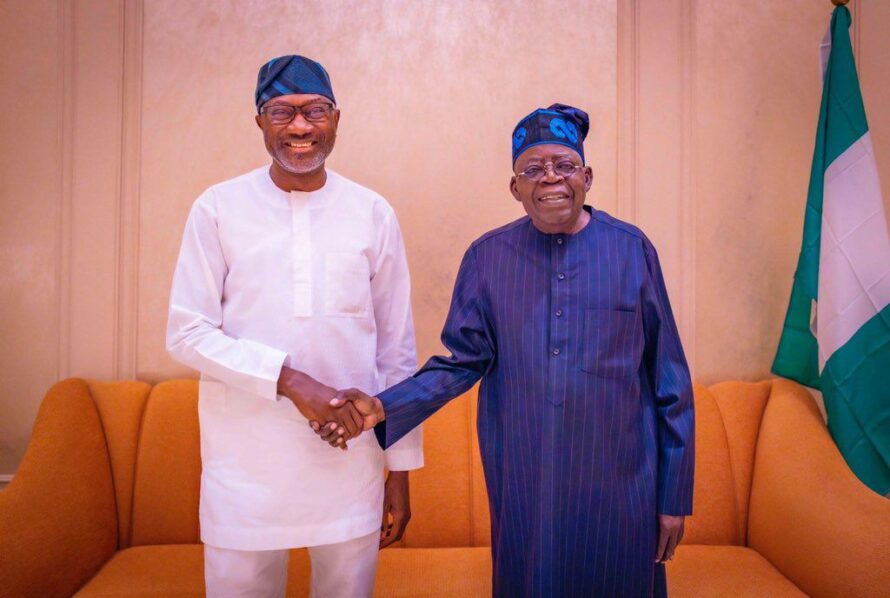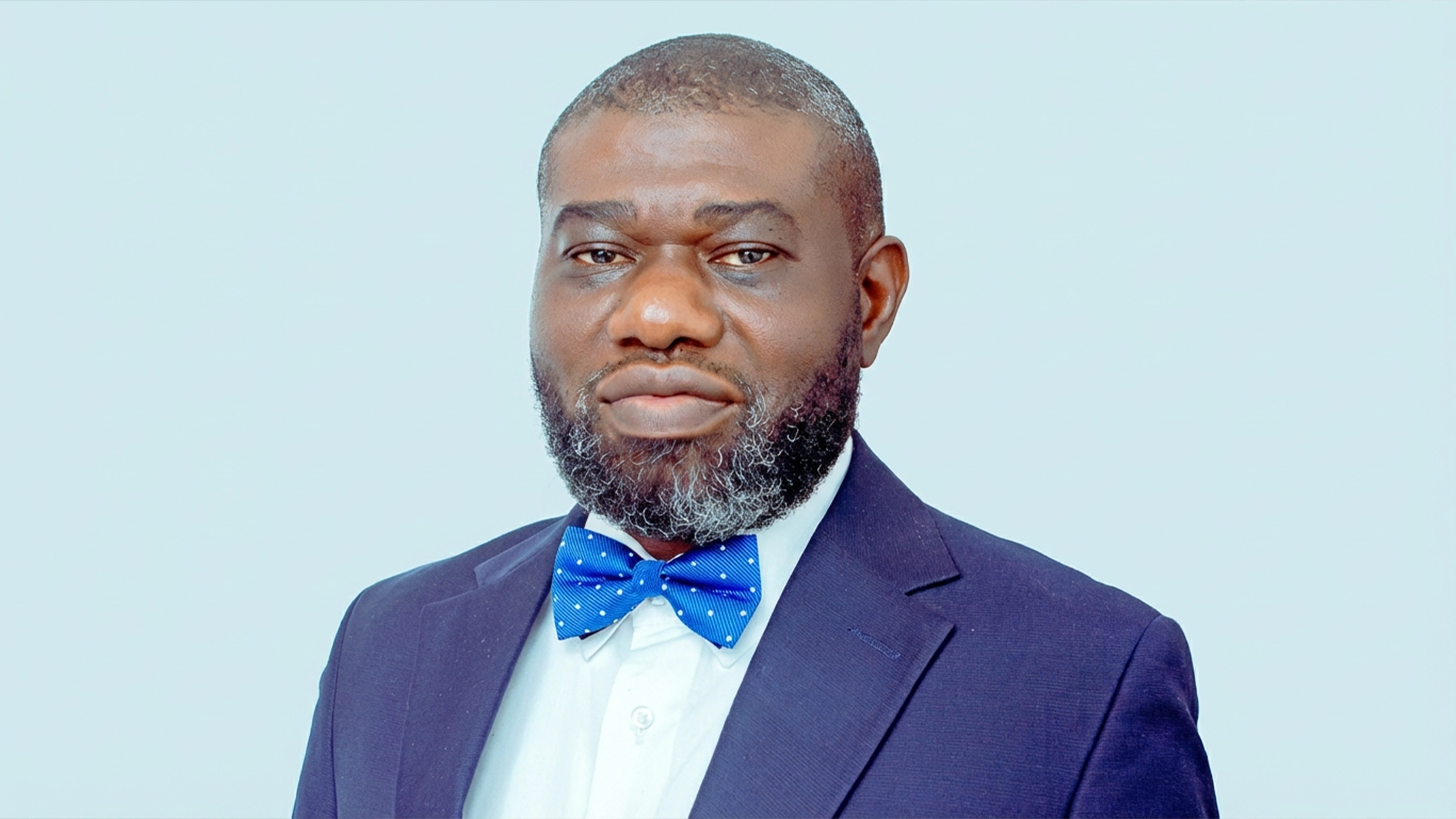
The truest wisdom, said the great French emperor, Napoleon Bonaparte, is a resolute determination. Not only that, it is the singular mark of most successful people, along with the courage to go their own way, trust their own instincts, and keep their head when everybody else is losing theirs.
One thing about Mr. Femi Otedola, as anybody who has worked with him (or whose path has crossed his, for better for worse) will tell you, is that he is not a conformist. Not for him the pressure to do what everyone else is doing. On the contrary, he will do what his conscience tells him is morally right, regardless of what everybody else is doing.
Thanks to that attribute, he has of late drawn comparisons to President Bola Ahmed Tinubu, another epitome of single-mindedness when it comes to the pursuit of a cherished goal or a coveted prize. Thanks, also, to a rigorous work ethic, a sound business acumen and unwavering commitment to excellence, he is one of Africa’s richest men; a billionaire with interests in various key sectors of the Nigerian economy. Known as the founder of Zenon Petroleum and Gas Limited, Otedola’s vast range of business interests span shipping, real estate, finance, and power. He is the former chairman of Forte Oil Plc, and current Executive Chairman of Geregu Power Plc.
Though not a career politician (in the sense of having to battle opposition parties and individual opponents during election campaigns), Otedola, like Tinubu, has, in the course of his public life, had to battle formidable adversaries whose business interests have proven inimical to his. Much has been said, of course, about his high-profile tussle with the prominent industrialist, Chief Oba Otudeko over the chairmanship of First Bank of Nigeria Holdings Plc, which culminated in the latter’s sacking in 2022, following a shake-up at the financial institution by the Central Bank of Nigeria (CBN) that indicted the industrialist for breaches of corporate governance. Otedola’s resolution throughout that episode spoke volumes about the lengths to which he would go in the conviction that his cause was just. Though Otudeko is reported to be working assiduously to reclaim his chairmanship seat, his prolonged stay outside the shores of Nigeria – ostensibly for health reasons – bespeak an apparent reluctance to re-enter into the fray with the now even more entrenched Otedola and his team. Less-charitable observers have gone as far as describing Otudeko’s sojourn abroad as a kind of self-imposed exile.
The similarities amongst the two, Otedola and President Tinubu, lie in the fact that each man has, in his current role, embarked on the road less travelled in the quest to achieve positive and far-reaching goals – the President in re-setting the badly skewed fundamentals of the Nigerian economy in a bid not just to engineer a recovery from its current downturn but to erect the building-blocks for the sustainable growth of the Nigerian economy; and the billionaire tycoon in ensuring the corporate health and prosperity of Nigeria’s foremost commercial bank (and its investment arm) by enthroning the principles of integrity, efficiency and the timely delivery of desired outcomes.
His emergence (or re-emergence) as chairman of FBNH (by virtue of his holding the largest individual share capital in the institution) has brought to light a number of issues pertaining to the modus operandi of the institution, its corporate governance profile, its financial health, its engagement with its shareholders, and its transactions with clients (and especially debtors). From the moment Otedola took over as Chairman, it was clear that there was going to be a seismic change – causing insiders to say that ‘the fear of Femi Otedola is the beginning of wisdom at First Bank.’ He wasted on time to launching a crackdown in the bank, which has seen a number of ranking officers of the bank relieved of their positions while some customers of the bank have already been referred to the security agencies.
First Bank Plc is no stranger to boardroom turbulence. But perhaps no previous episode has the potential to be as chaotic as the present one, as Otedola, like a no-nonsense schoolmaster in the days of old, has been wielding the big stick, not sparing anybody suspected to be involved in infractions. Already, the likes of the much-respected Global Head of Marketing and Corporate Communications, Mrs. Folake Ani-Mumuney; the immediate past Managing Director, Mr. Adesola Adeduntan, and the erstwhile Managing Director, Dr. Olabisi Onasanya, have been at the receiving end of Otedola’s sanctions – as they are alleged to have misappropriated shareholders’ funds.
While the top echelon of the bank was still recovering from the hammer that befell the likes of Ani-Mumuney, a wave – nay, an avalanche – of restructuring policies were being enforced. For example, a number of top executives at the bank were asked to leave their positions as part of its corporate restructuring and repositioning plan for 2025 – following the confirmation of Olusegun Alebiosu as the MD/CEO in June 2024.
These actions have not been without a pushback on the part of entrenched interests within the bank, most notably with a group of shareholders accusing Otedola and his ‘kitchen cabinet’ of seizing full control of the bank and doing as they pleased in disregard for laid-down corporate governance principles. They have also alleged that the Chairman’s preference for private placement instead of right issue or public offer was a ploy to gain control and run the financial institution as his private estate.
But by far the most momentous of Otedola’s battles to sanitize the affairs and operations of the 130-year old institution is the one he has laid at the doorstep of the media tycoon and CEO of the ThisDay Newspapers and the ARISE news TV channel, Prince Nduka Obaigbena, who has been accused of owing the bank a whopping $225.8 million through his oil-and-gas company, General Hydrocarbons Limited – an allegation the media owner has stridently denied. Denial or not, though, the matter has since escalated into a legal tussle following GHL’s request for a fresh $53 million facility to finance the development of an oil mining lease (or OML for short). Perhaps not surprisingly, officials at First Bank have refused to honor the new loan request, citing concerns over GHL’s utilization of previous loans disbursed for the same project, and the temporary freezing, (via a Mareva injunction court ruling, of GHL’s assets across multiple financial institutions in favour of FBN’s outstanding debt claims).
This sequence of events has, sadly, deepened tensions not just between both companies, but also between the two men at their respective helms. In response to FBNH’s debt claims, Obaigbena has published a notification on his media platforms, stating categorically that neither he nor GHL is owing First Bank anywhere near the sum of $225.8 million, and that the company entered into an agreement with FBN over oil production and development of OML 120 which project is, he says, still active and pending. “The allegations of a diversion of the monies advanced to GHL,” Obaigbena’s statement added, ‘are therefore befuddling and without merit …”
Otedola has, in turn, doubled down on his allegations that the fund in question, which he said in his own statement, were facilitated with the help of the former CBN Governor, Mr Godwin Emefiele, were purportedly for the operation of an oil block which Obaigbena obtained without competitive bidding. ‘However,’ he went on, ‘the funds were diverted for personal use, such as funding for Mr Emefiele’ 2023 presidential aspirations, the acquisition of luxury properties abroad, the operation of a private jet, and an extravagant $68 million spent on jet rentals in just four years.’
The bottom-line, the bank chairman reiterated – which anybody doing business with the apex bank henceforth will do well to keep in mind – was that, in his words, ‘my primary responsibility is to protect the interests of the bank’s shareholders and depositors …(and) to uphold the integrity of the financial system and protect depositors … The actions initiated in the courts are necessary to recover funds that belong to depositors and ensure corporate governance… I will not allow unscrupulous elements to derail the efforts of First Bank to recover loans or jeopardize the financial security of our shareholders.’
Tough words indeed, which as recent experience has shown, Femi Otedola has always backed with action. This tough stance, Otedola’s friends say, harks back to his early days in business; he was a money lender in Surulere in those days, they say. According to this narrative, none – not a single one – of his debtors escaped from paying back their loan, as he was ruthless in recovering his monies to the very last kobo.
Olufemi Otedola, they are unanimous in saying, doesn’t suffer fools gladly.
No wonder some watchers of the new sheriff at FBNH are beginning to imagine a Femi Otedola as Chairman of the Economic & Financial Crimes Commission (EFCC)! There would be a stampede at the nation’s exit points, says one of them, as many people would leave the country in droves within 24 hours of his announcement as the new EFCC boss.
Needless to say, the quest for good governance in Corporate Nigeria, and indeed in the Nigerian polity as a whole, makes the need for such no-nonsense sheriff as Femi Otedola an urgent imperative.
Keem Abdul, publisher and writer, hails from Lagos. He can be reached via +2348038795377 or [email protected]






